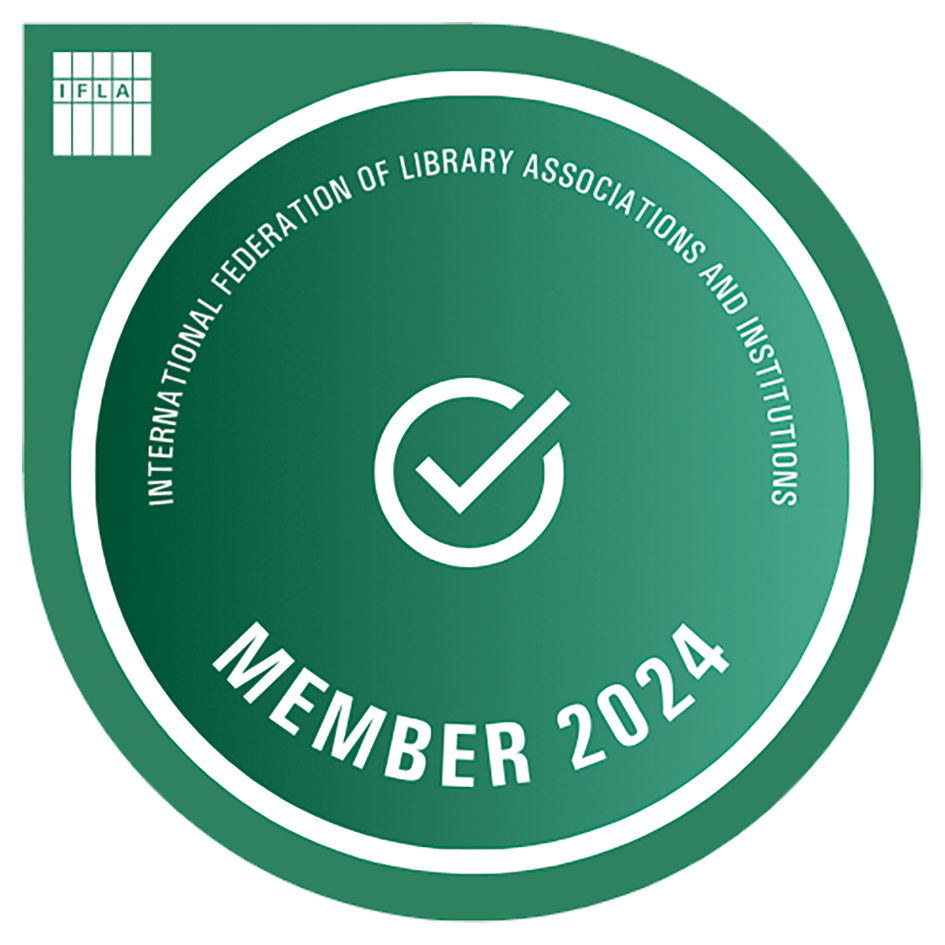News & Events
- 2021-05-03
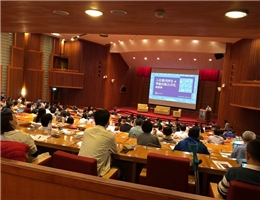
As a way to encourage journals in Taiwan to provide full text access and to increase the dissemination and visibility of scholarly research, National Central Library and the Ministry of Science and Technology’s Research Institute for the Humanities and Social Sciences teamed up to host a symposium on “Rating Humanities and Social Science Journals & the Publicizing of Scholarly Publications” on February 26, 2021.
Deputy Minister of Science and Technology Minn-tsong Lin said during his remarks at the opening ceremony that this symposium was an opportunity for everyone to begin thinking about the issue of publicizing scholarly publications. Through making scholarly resources public, research findings in Taiwan can be better promoted and disseminated, improving Taiwan’s scholarly research energy and international visibility. Deputy Minister Lin emphasized that the humanities and social sciences are unique and research information in Chinese is very useful for other researchers. He hoped through this symposium to gather suggestions from the publishing industry to help bring about a future consensus on how best to push forward the idea of making scholarly resources open to the public.
During NCL Director-General Shu-hsien Tseng’s remarks, she echoed what Deputy Minister Lin said. She explained that the Taiwan Citation Index - Humanities and Social Sciences (TCI-HSS) was co-created by NCL and the Ministry of Science and Technology’s Department of Humanities and Social Sciences. Through creating a database of scholarly works, such as journals and books, and their citations, the number of times a journal article, a dissertation, a book, or a book chapter have been cited can be easily seen. Journals can then produce an “impact factor,” and thus become objective reference data for the Ministry of Science and Technology journal ratings and the Ministry of Education’s scholarly evaluations. NCL is the legal depository for publications in Taiwan and shoulders the responsibility of acquiring, organizing, and archiving publications in Taiwan. To acquire deposited resources, the databases that NCL has created provide data in all disciplines and are helpful in scholarly dissemination. Furthermore, NCL’s databases are reliable databases of national government agencies. They provide publishers a guarantee of archiving and preservation. This means that whatever changes might happen in the management of private companies, the materials deposited will not be lost or inaccessible.
Ministry of Science and Technology’s Research Institute for the Humanities and Social Sciences Director Ming-sho Ho spoke on how to apply for a subsidy for the editing cost of a journal, including qualifications, items for subsidies, 2021 subsidies, e-dissemination of scholarly journals, and so forth. Next, the Deputy Director of the Institute Ye-ning Chen and staff explained the ratings system for journals in the humanities and social sciences, including the ratings schedule, ratings results, recent history, the new ratings year for each discipline, qualifications for application, the process for getting ratings, rating indicators, and rating results classification meetings.
NCL’s Knowledge Services Division Director Yi-jung Li introduced NCL efforts to increase journal authorization, as well as current authorization results, effects, and methods. Another staff explained the difference in use rates of journals that had and had not been authorized for public access using various charts based on reports by the modified and soon to be released to the public NCL Taiwan Periodical Literature database. She also explained that in the search results on the Directory to Taiwan Periodicals database, one thing that can be shown is a journal’s impact factor. In the Taiwan Periodical Literature database, search results can show how many times a journal has been cited in other publications. Such data can be used to analyze the effectiveness of increasing knowledge dissemination and a journal’s influence by authorizing it for public access.
Content of the general discussion was on the management of journals. The four scholars all mentioned submissions, government subsidies, and editorial manpower are areas that are struggling. They hope that in the future the journal publication industry and related government agencies can have a deep discussion and ponder more about how to deal with making the journals public and the operational side of the journals.
Representatives from more than 150 public and private journal publishing institutions attended. They actively engaged in discussion and received responses from the discussants. The result were many important insights that will inform related services at NCL and new policies by the Ministry of Science and Technology. Indeed, the purpose of the symposium was more than achieved.
-
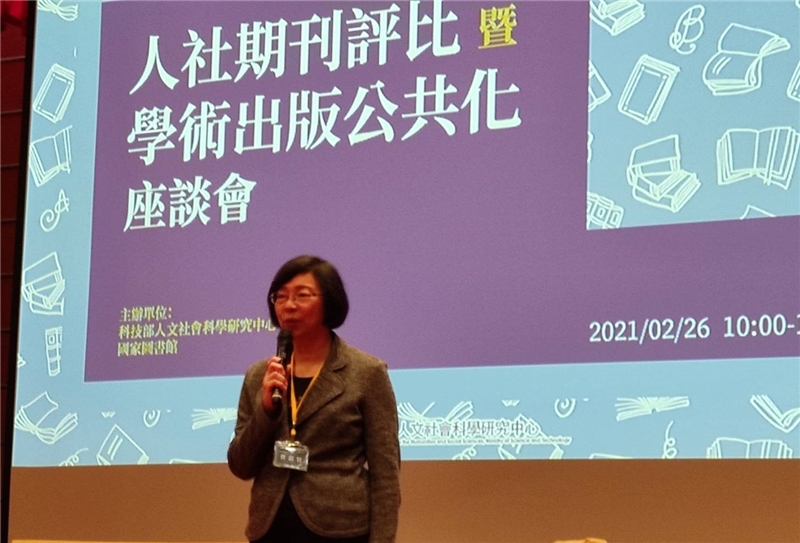 Remarks of NCL Director-General Tseng.
Remarks of NCL Director-General Tseng. -
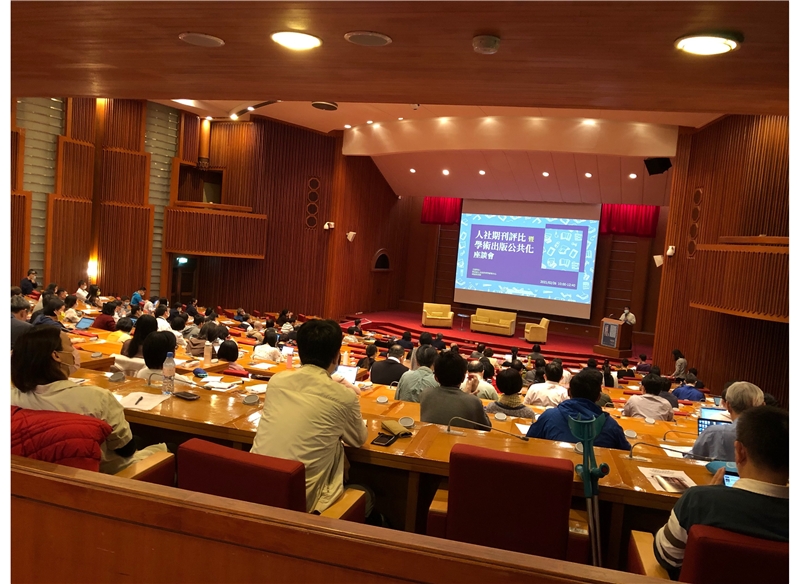 Attendees of the symposium were actively engaged in the discussion.
Attendees of the symposium were actively engaged in the discussion. -
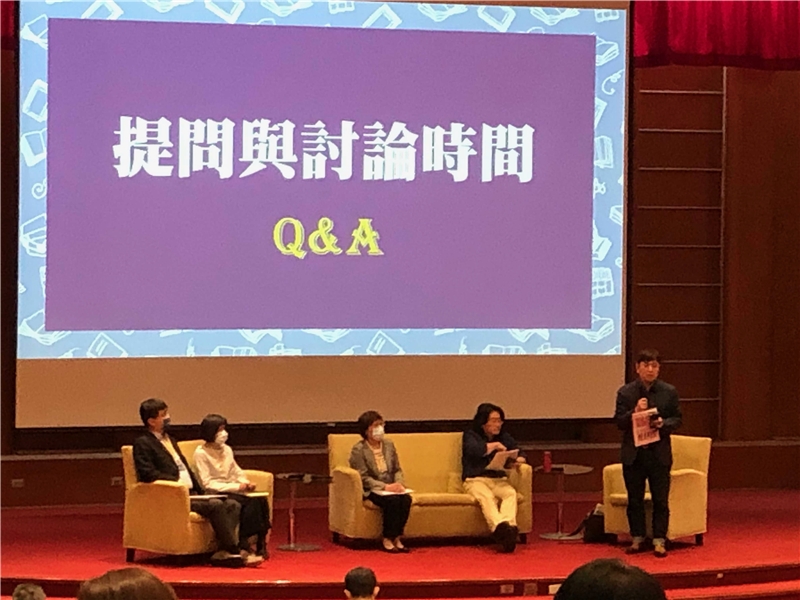 Ministry of Science and Technology Department of Humanities and Social Science Head Ming-jen Lin and scholars from four different disciplines who are publication editors in their fields engaged in a Q&A session.
Ministry of Science and Technology Department of Humanities and Social Science Head Ming-jen Lin and scholars from four different disciplines who are publication editors in their fields engaged in a Q&A session.
- Resources
- NEWS & Events
- ABOUT NCL
- International Cooperation and Exchange
- Services






